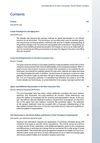 February 2010 in “Facial Plastic Surgery Clinics of North America”
February 2010 in “Facial Plastic Surgery Clinics of North America” Tailoring facial plastic surgery to different ethnic groups ensures natural and satisfactory results.
 305 citations,
March 2018 in “International journal of molecular sciences”
305 citations,
March 2018 in “International journal of molecular sciences” The document concludes that the understanding of scar formation is incomplete and current prevention and treatment for hypertrophic scars and keloids are not fully effective.
[object Object]  42 citations,
January 2017 in “Stem cells international”
42 citations,
January 2017 in “Stem cells international” Adding hyaluronic acid helps create larger artificial hair follicles in the lab.
 36 citations,
June 2017 in “Journal of Cutaneous Medicine and Surgery”
36 citations,
June 2017 in “Journal of Cutaneous Medicine and Surgery” The consensus document recommends a comprehensive treatment plan for Hidradenitis Suppurativa, including various medications, surgery, lifestyle changes, and the need for more research and resources.
 30 citations,
May 2004 in “Journal der Deutschen Dermatologischen Gesellschaft”
30 citations,
May 2004 in “Journal der Deutschen Dermatologischen Gesellschaft” The document concludes that early diagnosis and treatment are crucial for children with hair loss to prevent permanent damage, although not all conditions can be effectively treated.
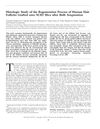 19 citations,
November 2001 in “Journal of Investigative Dermatology Symposium Proceedings”
19 citations,
November 2001 in “Journal of Investigative Dermatology Symposium Proceedings” Human hair follicles can regenerate and recover after severe injury by going through a brief abnormal resting phase before growing again.
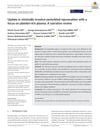 15 citations,
March 2020 in “Journal of cosmetic dermatology”
15 citations,
March 2020 in “Journal of cosmetic dermatology” PRP is effective for improving the appearance around the eyes.
13 citations,
December 2001 in “Journal of Investigative Dermatology” Overexpressing ornithine decarboxylase and v-Ha-ras in keratinocytes leads to invasiveness and malignancy.
 11 citations,
July 2008 in “Facial Plastic Surgery Clinics of North America”
11 citations,
July 2008 in “Facial Plastic Surgery Clinics of North America” Hair restoration surgery redistributes existing hair to achieve a natural look, with visible regrowth in 3-4 months and rare complications, mostly aesthetic.
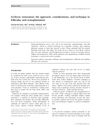 10 citations,
August 2015 in “Journal of Cosmetic Dermatology”
10 citations,
August 2015 in “Journal of Cosmetic Dermatology” Successful eyebrow restoration can be done using careful hair transplant techniques and choosing the right patients.
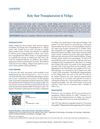 9 citations,
January 2013 in “Journal of Cutaneous and Aesthetic Surgery”
9 citations,
January 2013 in “Journal of Cutaneous and Aesthetic Surgery” Transplanting body hair helped repigment and treat a man's vitiligo.
[object Object]  November 2018 in “Springer eBooks”
November 2018 in “Springer eBooks” The document concludes that specialized hair transplant techniques can be effective, with varying success rates depending on the donor area and patient factors.
 April 2016 in “Plastic and reconstructive surgery. Global open”
April 2016 in “Plastic and reconstructive surgery. Global open” The supplement highlighted advancements and challenges in plastic and reconstructive surgery, including the impact of smoking, chemotherapy, and new treatments like Tafluprost for hair loss.
 January 2016 in “Georg Thieme Verlag eBooks”
January 2016 in “Georg Thieme Verlag eBooks” Facelift surgery has evolved to focus on natural results and safety, with patient selection and postoperative care being key to success.
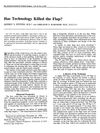 June 1997 in “The American Journal of Cosmetic Surgery”
June 1997 in “The American Journal of Cosmetic Surgery” Scalp flaps are still a valuable hair loss treatment because of their benefits.
 April 1981 in “Postgraduate Medicine”
April 1981 in “Postgraduate Medicine” In 1981, the punch graft technique was the main method for hair transplantation, and medical treatments for baldness were not very effective.
 79 citations,
October 2015 in “Journal of Dermatological Treatment”
79 citations,
October 2015 in “Journal of Dermatological Treatment” Platelet-rich plasma may have some benefits in dermatology, but there's not enough evidence to widely recommend its use.
 63 citations,
September 2009 in “Regenerative Medicine”
63 citations,
September 2009 in “Regenerative Medicine” Scientists found a way to grow human hair cells in a lab that can create new hair when transplanted.
 54 citations,
December 2014 in “Wound Repair and Regeneration”
54 citations,
December 2014 in “Wound Repair and Regeneration” PRP injections may improve hair thickness and density in female hair loss patients.
 35 citations,
April 2006 in “Ocular Surface”
35 citations,
April 2006 in “Ocular Surface” Cosmetics and procedures can cause eye issues, from mild discomfort to serious conditions, due to allergies, toxins, or poor care.
 34 citations,
August 2002 in “British Journal of Dermatology”
34 citations,
August 2002 in “British Journal of Dermatology” ALA-PDT is effective and safe for chronic X-ray dermatitis, providing complete or partial remission.
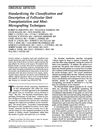 33 citations,
September 1998 in “Dermatologic Surgery”
33 citations,
September 1998 in “Dermatologic Surgery” Surgeons suggested a standard system for hair transplant methods to improve communication and results.
 32 citations,
November 2012 in “Aesthetic Surgery Journal”
32 citations,
November 2012 in “Aesthetic Surgery Journal” Hair restoration surgery has advanced, focusing on natural results and may improve further with new techniques and therapies.
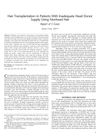 25 citations,
May 2011 in “Annals of Plastic Surgery”
25 citations,
May 2011 in “Annals of Plastic Surgery” Nonhead hair transplantation is effective for patients with limited head donor hair, but more research is needed.
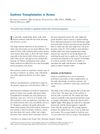 25 citations,
March 2009 in “Dermatologic Surgery”
25 citations,
March 2009 in “Dermatologic Surgery” Eyebrow transplantation can be successful for Asians with the right technique and care, but regular maintenance is necessary.
 22 citations,
January 2014 in “International Journal of Trichology”
22 citations,
January 2014 in “International Journal of Trichology” Hair restoration surgery can lead to swelling, infections, scarring, numbness, hiccups, and poor hair growth.
 20 citations,
May 2015 in “Regenerative Medicine”
20 citations,
May 2015 in “Regenerative Medicine” The document warns against US clinics selling untested stem cell treatments without FDA approval.
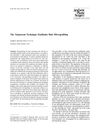 17 citations,
January 1996 in “Aesthetic Plastic Surgery”
17 citations,
January 1996 in “Aesthetic Plastic Surgery” The tumescent technique improves hair micrografting by providing lasting anesthesia, reducing bleeding, and increasing patient comfort.
 14 citations,
November 2020 in “International Journal of Molecular Sciences”
14 citations,
November 2020 in “International Journal of Molecular Sciences” Advanced therapies like gene, cell, and tissue engineering show promise for hair regrowth in alopecia, but their safety and effectiveness need more verification.
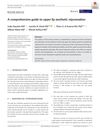 9 citations,
March 2019 in “Journal of cosmetic dermatology”
9 citations,
March 2019 in “Journal of cosmetic dermatology” Different treatments can make an aging upper lip look younger and better proportioned.





























